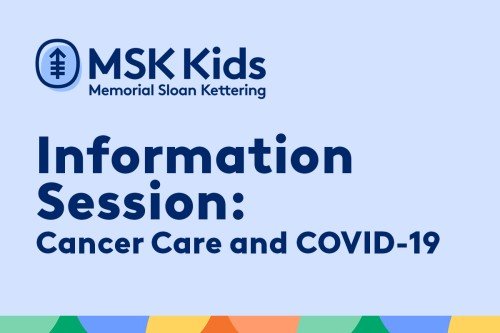
A new study led by pediatric cancer specialists at Memorial Sloan Kettering suggests that children with cancer are no more likely than other kids to be infected with COVID-19 or to have severe symptoms when infected. The findings, published in the May 13 issue of JAMA Oncology, is the first report of testing for COVID-19 in children with cancer.
“Despite some speculation that children might be a ‘reservoir’ of COVID-19 infection, we found that kids have lower rates of infection than adults,” says the study’s senior author Andrew Kung, who is Chair of MSK’s Department of Pediatrics, one of the largest pediatric cancer programs in the US.
The study also revealed that children with cancer are not more endangered by COVID-19. “We observed that kids with cancer who have COVID-19 experience mild symptoms, similar to what we would see in otherwise healthy children,” said Dr. Kung. “These are reassuring findings, although it doesn’t mean that we should be complacent.”
Shedding Light on COVID-19 Infection in Children
The research team led by Dr. Kung put into place a screening and testing plan to decrease the risk of COVID-19 infection among children who came to MSK for cancer care. They screened pediatric patients, who were on average 11 years old, by asking specific questions about their exposure to people who were known to be infected with COVID-19 or who had symptoms of the virus, including fever, cough, difficulty breathing, pain, and loss of smell or taste.
In the month between March 10 and April 12, COVID-19 tests were performed in 178 pediatric patients and 74 caregivers. In the 58 children who were tested because they had symptoms or known exposures, 29.3 percent were positive for the virus. In contrast, among the 120 children without known exposure to the virus and no symptoms, the researchers found that the infection rate was very low — only 2.5 percent.
The researchers also observed that the number of kids with cancer in the study who got sick from COVID-19 was low, with only one patient requiring hospitalization. The rest of the children had mild disease symptoms and were able to recover at home.
Monitoring Caregivers for COVID-19
The study also showed that 14.7 percent of the adult caregivers tested positive despite having no symptoms of the virus. This contrasts with the low rate of COVID-19 infection found among asymptomatic kids with cancer.
The researchers found that patients tested positive for COVID-19 only in half of the instances where a caregiver was found to be positive. This supports the idea that children have a decreased risk of infection even when in close contact with an adult who has the virus. These results underscore the importance of social distancing and proper use of precautions, even in the absence of symptoms of illness.
“We are encouraged by our findings that show kids with cancer are not more vulnerable to COVID-19 and its symptoms than other children,” said Dr. Kung. “This means we can continue lifesaving cancer therapy with standard precautions and safeguards but without heightened concern about COVID-19 infection.”




